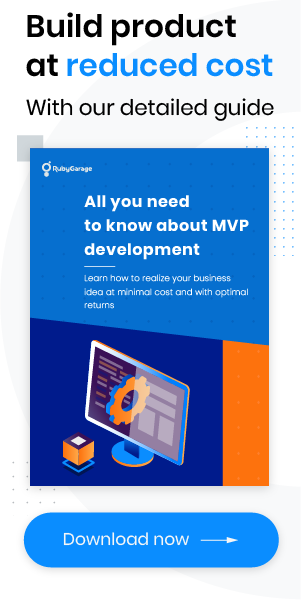-
Product Management
Software Testing
Technology Consulting
-
Multi-Vendor Marketplace
Online StoreCreate an online store with unique design and features at minimal cost using our MarketAge solutionCustom MarketplaceGet a unique, scalable, and cost-effective online marketplace with minimum time to marketTelemedicine SoftwareGet a cost-efficient, HIPAA-compliant telemedicine solution tailored to your facility's requirementsChat AppGet a customizable chat solution to connect users across multiple apps and platformsCustom Booking SystemImprove your business operations and expand to new markets with our appointment booking solutionVideo ConferencingAdjust our video conferencing solution for your business needsFor EnterpriseScale, automate, and improve business processes in your enterprise with our custom software solutionsFor StartupsTurn your startup ideas into viable, value-driven, and commercially successful software solutions -
-
- Case Studies
- Blog
How Developers Can Make money with Open Source Projects
Most people, when they think of open source software, imagine enthusiastic and generous developers who spend their days and nights creating software for free. Indeed, for a few decades “open source software” was synonymous with “free software.” Developing software with open code through group effort excluded the opportunity for profit. But today there are ways to profit from building open source software (OSS).
Lately, developers have started thinking about how to monetize their OSS. We're going to highlight a few common ways to make profits from open source software.
Software as a Service (OpenSaaS)
One way to monetize your open source project is by using the SaaS business model. This option makes sense if you have a fully-fledged application capable of generating demand. The SaaS model is a popular way to license software because it’s flexible and offers rapid deployment and decreased costs. What makes SaaS attractive is that the software is stored in the cloud; users only need a web browser to access an application. SaaS is a popular business model for vendors that build tools for HR, collaboration, content management, and project management.
SaaS solutions with a free codebase reduce development costs and eliminate the need to build redundant functionality. Additionally, the vibrant OSS community will gladly promote quality open source products. With an OpenSaaS model, software is purchased via subscriptions, which can offer varying levels of service. For example, you might offer technical support, software customization, and trainings as package options. WordPress and Sharetribe are two bright examples of OpenSaaS products. Let’s see how they function.
WordPress as OpenSaaS
WordPress effectively functions as a free SaaS product: it’s an open platform, and it offers subscription plans with extra features like unlimited storage, automatic backups, customizable themes, and custom domain names. We say “effectively,” however, because WordPress technically comes in the form of a software product you can install on your own web server and maintain independently. The SaaS version of WordPress can be found at wordpress.com. If you choose this service, then WordPress hosts your application for you. However, since there’s no vendor lock-in, a customer can easily switch to a self-hosted WordPress version any time.
Sharetribe as OpenSaaS
Sharetribe, a marketplace builder, is another great example of an OpenSaaS product. It comes in two versions: a self-hosted free version which can be found on GitHub, and a cloud-based hosted version at sharetribe.com. With the SaaS version of Sharetribe, customers receive software hosted on Sharetribe’s servers along with full-cycle support and maintenance, from installation to backups. With the SaaS version, customers don’t have to worry about updating their software, as this is done by Sharetribe. But while the SaaS version receives great support and additional offerings like custom domain and removal of Sharetribe branding, this version of Sharetribe is less customizable, only allowing you to personalize marketplace filters and change colors, images, and block position in the user interface.
With the open source version of Sharetribe, on the other hand, the customer has to deploy Sharetribe on their own server and run updates and backups themselves. The GitHub community offers decent support, but ultimately you’re on your own.
Though there aren’t many examples of OpenSaaS products on the market today, we feel that this business model is just beginning. The term ‘OpenSaaS’ was only coined in 2011 by Dris Buytaert, creator of Drupal. OpenSaaS is an exciting new trend that combines the best of both worlds, allowing people to build web experiences more easily than ever.

Paid support
Many OSS companies succeed by providing extra services.
Such as technical support, certifications, and trainings. In fact, most professional open source companies – including Red Hat, JBoss, and MySQl – have built their entire business by providing free solutions. They generate profits only from additional services.
The most common way to get revenue from OSS is to provide paid support. Red Hat sets the bar for this model, boasting substantial revenue. In 2016, the company – widely known for its enterprise operating system, Red Hat Enterprise Linux – announced a profit of 2.05 billion dollars.
Red Hat does admirably by selling yearly subscriptions for user and technical support. Customers can choose a subscription plan based on number of requests, severity of requests, support channels and hours of coverage. MySQL, the leading open source database, derives revenue from selling support subscriptions for their product.
Paid support is an effective tool for making profit from open source for a few reasons. First, enterprise owners can save money on their payroll. Instead of hiring in-house specialists, enterprises can have access to certified support specialists on a less expensive basis. Second, enterprises can have peace of mind knowing that they can call in the pros whenever a problem arises.
Dual licensing
Dual licensing allows companies to release commercial software (with a commercial license) that’s derived from free OSS commonly distributed under the GNU General Public (GPL) license. Dual licensing can be implemented in a few ways. In the first scenario, a company releases identical products under a commercial license and under a free license like GPL. In the second scenario, the company releases different versions under different licenses.
So what’s the point of dual licensing? The GPL license allows end users to run OSS, redistribute that software, and modify it. However, you can’t embed OSS solutions into your proprietary (commercial) software and make profit under a GPL license. This is precisely where you’ll need a commercial version of an open source product to have the right to sell your commercial software.
The most well-known example of successful dual licensing is MySQL. The company releases MySQL Enterprise Edition, MySQL Cluster CGE, and MySQL Standard Edition under commercial licenses while still offering two other products – MySQL Classic Edition and MySQL Community Edition – under the GPL license. The commercial versions receive enhanced security features, backups, 24/7 support and more.

Paid extra features or functionalities
Some companies make money with open source in this way: they distribute their software for free, but charge money for additional features, functionalities, or updates. We can't call such approach selling open source software.
As we mentioned previously, customers feel most comfortable paying for only the services they utilize. Which is why, charging money for extra functionality is attractive for a number of reasons. First, it’s quite clear what additional functionality customers are paying for. Second, customers can save money on deployment and troubleshooting when these services are included in paid packages. For instance, GitLab distributes their developer tools in three editions. Their version for enterprises includes premium support, file locking and advanced solutions for remote teams, and is billed per user.
Charging money for additional functionality works well for software designed for blogging, HR, collaboration, customer management, and other similar needs. WordPress provides their Premium and Enterprise customers, for instance, with additional websites and an additional workforce to maintain their WordPress sites. While the fee per developer is quite high – $5k USD per month – customers receive certified professionals assigned to specific technologies and businesses.
Paid certification
If software is popular enough, companies can offer certification opportunities for specialists who want to validate their knowledge and skills. Getting certified, as a developer, is quite useful for a number of reasons. First, it’s a great opportunity to differentiate yourself among other specialists with the same skills. Second, developers realize the importance of networking with mentors and groupmates. Finally, a developer’s certification leads lends them additional professional credibility and even promotions, and can boost a company’s image.
Open source giants including Magento and Red Hat offer a variety of certification options. In fact, Red Hat offers around 30 different kinds of certifications in Red Hat’s products as well as PaaS, business processes, deployment and system management. Magento issue certificates for skills related to Magento development and solutions.
Conclusion
Open source software is highly regarded thanks to its security, reliability, and vibrant communities that support it. Moreover, OSS helps companies avoid reinventing the wheel, and can even be used within proprietary software. Altogether, these factors have made OSS quite popular. Today, people are willing to pay for open source software to ensure legal protection, technical support, and professional services. With paid open source technologies, companies can offer the best of both worlds: transparent technology with the support and features of commercial software.











